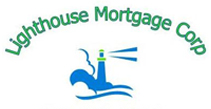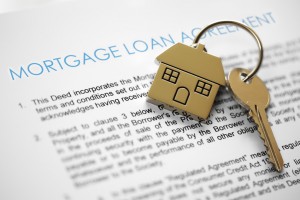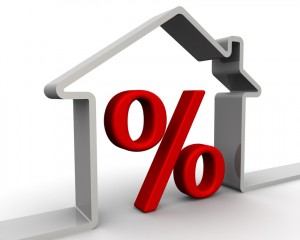Is a Fixed Mortgage Rate Right For You?
 After months of searching the internet for listings, calling Realtors, and viewing property, you’ve finally found the house that’s perfect for you. Congratulations! Unfortunately, your work isn’t over yet. Once you’ve selected the house you want to purchase, you will need to find a way to pay for it. A mortgage is a loan granted by a home mortgage lending company to an individual who seeks to buy a house. There are many different types of mortgages that a home buyer can apply for, but fixed mortgages are by far the most popular, representing over 75% of all home loans. Read on to learn the basics of a fixed-rate mortgage, and find out why it might be the best type of home loan for your new home.
After months of searching the internet for listings, calling Realtors, and viewing property, you’ve finally found the house that’s perfect for you. Congratulations! Unfortunately, your work isn’t over yet. Once you’ve selected the house you want to purchase, you will need to find a way to pay for it. A mortgage is a loan granted by a home mortgage lending company to an individual who seeks to buy a house. There are many different types of mortgages that a home buyer can apply for, but fixed mortgages are by far the most popular, representing over 75% of all home loans. Read on to learn the basics of a fixed-rate mortgage, and find out why it might be the best type of home loan for your new home.
Fixed-rate mortgages are a loan type where the interest rate remains the same throughout the entire loan. This means that the monthly payments do not change, unless there are fluctuations in property taxes, insurance costs, or homeowner association fees. Fixed-rate mortgages typically come in terms of 10, 15, or 30 years. The 30 year option is the most popular option, as it allows for the smallest amount of payments each period.
Each month’s payment is calculated by multiplying the interest rate times your home loan premium, plus a portion of the premium itself as stated in your mortgage contract. Since the amount of your outstanding premium is reduced each time you make a payment, the amount of interest will also decrease. This means that more of your payments go into your mortgage as time goes on.
Fixed-rate mortgages are the most popular due to their ease and predictability. When comparing between fixed mortgages, remember to calculate in other fees that buying a house may incur, such as closing costs. Closing costs are, on average, about 2% of your mortgages loan amount. Before choosing a fixed-rate mortgage, be sure to do extensive research on the different loan offers, and make sure to find the one that best fits you and your lifestyle.

 The economy is on the mend, and that means more young Americans are entering the housing market. Purchasing your first home is always a memorable experience; the goal is to also make it a positive one. With some precautions, homeowners-to-be in the United States can make certain that they invest in homes that serve them well for years to come. Here are a few critical mistakes to avoid:
The economy is on the mend, and that means more young Americans are entering the housing market. Purchasing your first home is always a memorable experience; the goal is to also make it a positive one. With some precautions, homeowners-to-be in the United States can make certain that they invest in homes that serve them well for years to come. Here are a few critical mistakes to avoid: For the first time in years, millennials are optimistic about buying homes — and, for that reason, 2015 may be one of the strongest years for the housing market yet. More specifically, a recent survey by Realtor.com of individuals visiting their website shows that, in just six months, the percentage of those millennials who hope to buy a home in the next three months climbed from 54 to 65%. Why are attitudes shifting so quickly? For now, the answer or answers to that question are mostly speculation. A growing housing market (meaning more houses up for sale) and a recovering economy are some of the most likely reasons.
For the first time in years, millennials are optimistic about buying homes — and, for that reason, 2015 may be one of the strongest years for the housing market yet. More specifically, a recent survey by Realtor.com of individuals visiting their website shows that, in just six months, the percentage of those millennials who hope to buy a home in the next three months climbed from 54 to 65%. Why are attitudes shifting so quickly? For now, the answer or answers to that question are mostly speculation. A growing housing market (meaning more houses up for sale) and a recovering economy are some of the most likely reasons. Student loan debt is on the rise — with the average student now graduating with debt “approaching $30,000,” according to U.S. News and the Institute for College Access and Success. While this isn’t good news based on any measure, new studies show it may have even more of an impact than people think. Student loan debt has already lead to an 8% decrease in mortgages and home purchases among Americans ages 20 to 39, and, if prospective home buyers do not take action, that is only likely to get worse. Thankfully, there are plenty of things U.S. men and women can do to reverse this downward trend. Here are just a few:
Student loan debt is on the rise — with the average student now graduating with debt “approaching $30,000,” according to U.S. News and the Institute for College Access and Success. While this isn’t good news based on any measure, new studies show it may have even more of an impact than people think. Student loan debt has already lead to an 8% decrease in mortgages and home purchases among Americans ages 20 to 39, and, if prospective home buyers do not take action, that is only likely to get worse. Thankfully, there are plenty of things U.S. men and women can do to reverse this downward trend. Here are just a few: The very last thing you want is for your mortgage to be an elusive thing. More often than not, however, that’s exactlyhow it works. According to research by Bankrate.com, 35% of homeowners admit that they don’t even know what their mortgage rate is. Of the 65% who are “very confident” that they know, analyst Holden Lewis says it’s very possible that they’re too confident. After some digging, even homeowners who claimed to know their mortgage rate were off by a couple of percentage points. What does this mean? Apparently, there are a lot of things Americans do not know about home mortgage lending and mortgage types. Here are some things to know before securing your mortgage:
The very last thing you want is for your mortgage to be an elusive thing. More often than not, however, that’s exactlyhow it works. According to research by Bankrate.com, 35% of homeowners admit that they don’t even know what their mortgage rate is. Of the 65% who are “very confident” that they know, analyst Holden Lewis says it’s very possible that they’re too confident. After some digging, even homeowners who claimed to know their mortgage rate were off by a couple of percentage points. What does this mean? Apparently, there are a lot of things Americans do not know about home mortgage lending and mortgage types. Here are some things to know before securing your mortgage: